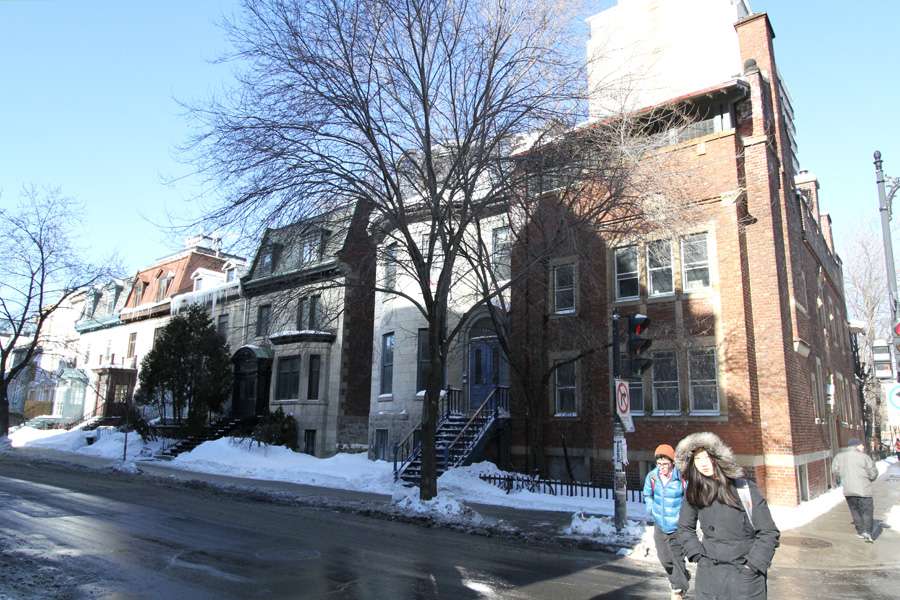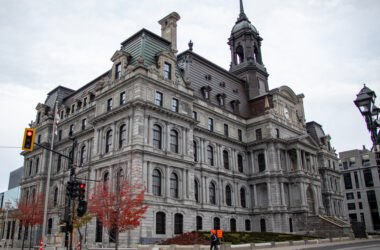This week on Along Party Lines, The McGill Tribune examines where Quebec’s major political parties stand on housing and healthcare ahead of the provincial election on Oct. 3.
Housing in Quebec
Over the past several years, Quebec has faced a housing shortage compounded by skyrocketing rents and asking prices, limited subsidized housing, and low vacancy rates. Some politicians have proposed measures to combat the shortage, including eliminating the welcome tax—a fee home buyers must pay to municipalities—to increase affordability, and creating a vacancy tax to encourage owners to rent out property.
Healthcare in Quebec
The COVID-19 pandemic showcased the province’s healthcare system failings, including long wait times in emergency rooms and waitlists for surgeries due to understaffed hospitals and low bed availability. The shortage of doctors and nurses has forced those already on staff to work mandatory overtime and has even led to hospital closures.
Coalition Avenir Québec (CAQ)
Premier François Legault, the CAQ’s leader, has promised to build 11,700 new units of social housing and to subsidize 7,200 units if re-elected. The CAQ’s platform does not contain any policies addressing the vacancy rate or welcome tax.
In response to low hospital bed availability, the CAQ has proposed using home hospitalizations, where patients are treated virtually, as an approach for certain types of care. The party supports a healthcare system that uses a mixture of private and public providers, and has suggested creating private “mini hospitals” for frontline care. Legault has promised to recruit an additional 660 doctors and 5,000 other healthcare workers over the next four years.
Liberal Party of Quebec (PLQ)
The PLQ plans to provide more affordable housing by building 50,000 units of social housing over a 10-year period. Party leader Dominique Anglade has promised to remove the welcome tax for home buyers and to impose a vacancy tax for non-resident owners.
To combat hospital wait times, the party plans to purchase 4,000 additional hospital beds to increase hospital capacity. The PLQ has also proposed increasing the number of students in nursing and medical programs and collaborating with private providers to decrease the backlog of patients awaiting surgery.
Conservative Party of Quebec (PCQ)
The PCQ does not support subsidized social housing and, instead, promises to offer government allowances to increase affordability. The party’s platform has no policies on the welcome or vacancy tax.
Éric Duhaime, the PCQ’s leader, supports competition between the private and public healthcare sectors to reduce wait times. The PCQ plans to launch a pilot project of a completely private hospital and wants to allow citizens to purchase private health insurance as a supplement to public insurance. The party promises to raise the number of admissions to Quebec medical schools from 300 to 500 per year.
Québec Solidaire (QS)
QS has promised to build a total of 50,000 social housing units if elected. QS spokesperson Gabriel Nadeau-Dubois plans to convert new buildings, such as offices, into community housing, and promotes alternative types of homeownership, including housing cooperatives. QS’s platform also includes a policy to create a 0.5 per cent to one per cent tax for vacant units.
QS plans to increase the involvement of Local Community Service Centres (CLSCs) for minor health concerns to alleviate the strain on hospitals. The party also proposes hiring 900 more psychologists and 1,000 other mental healthcare workers in public clinics and hospitals.
Parti Québécois (PQ)
The PQ, led by Paul St-Pierre Plamondon, supports the construction of subsidized housing, such as housing cooperatives. The party promises to tighten regulations on real estate speculation, but its platform does not contain specific policies that address this, the welcome tax, or the vacancy tax.The party is opposed to private healthcare organizations, and instead advocates for universal healthcare. If elected, it would also raise the number of admissions to healthcare programs in the province and use CLSCs to treat non-severe medical emergencies.
A previous version of this article incorrectly stated that high vacancy rates were contributing to Quebec’s housing shortage. In reality, low vacancy rates for residential units are associated with rising rents and therefore the housing shortage, while high vacancy rates are present among commercial units. The Tribune regrets this error.







